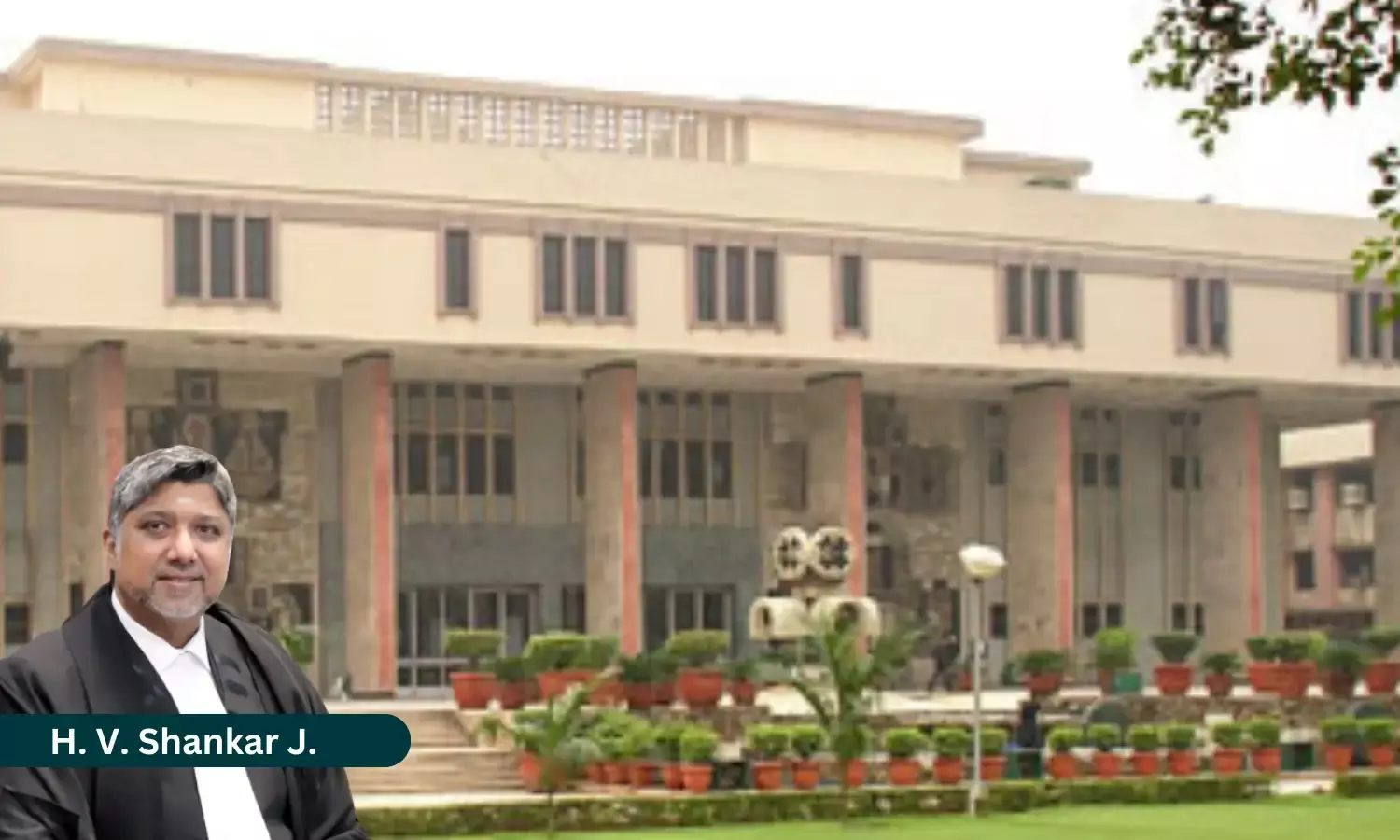Bounden Duty Of State To Ensure Safety: Delhi High Court Grants ₹2L Compensation In Alleged Custodial Death Case
The Delhi High Court was hearing a Writ Petition filed by the deceased woman seeking a judicial inquiry into the death of her son and for appropriate compensation.

Justice Harish Vaidyanathan Shankar, Delhi High Court
The Delhi High Court has granted compensation of Rs 2 lakhs in a case involving alleged death of a man who was in judicial custody.
The Court was hearing a Writ Petition filed by the deceased woman seeking a judicial inquiry into the death of her son and for appropriate compensation.
A Single Bench of Justice Harish Vaidyanathan Shankar observed, “This Court is of the firm opinion that it is the bounden duty of the State to ensure the safety of persons who are in its custody. While the deceased Victim may have been a person with criminal antecedents, the State is not absolved of its duty to ensure the safety and well-being of the prisoners in its custody. This Court believes that it is the duty of the State to ensure that every person who is in custody is kept safe and secure from themselves as well as other such inmates who are present therein.”
The Bench reiterated that the Prisoners are not shorn of their fundamental rights while in custody.
Advocate Wills Mathews represented the Petitioner while Advocate Dhruv Rohatgi represented the Respondents.
Brief Facts
The Petitioner’s son was convicted in a case arising out of an FIR registered under Sections 394, 397, and 34 of the Indian Penal Code, 1860 (IPC) and was serving a 7-year term of imprisonment at the Tihar jail. The deceased was due to be released in 2013, however, the mother was informed of the unfortunate demise of her son. The cause of death was apparently a fight between two groups of inmates in the jail. The mother preferred a Petition seeking a judicial inquiry into the death of the deceased and grant of appropriate compensation on the ground that the deceased was the sole bread earner and she was a dependent of the deceased. During the pendency of the Petition, the mother was compensated with an amount of Rs. 1 lakh. She apparently suffered from various ailments and passed away in 2016.
Reasoning
The High Court in view of the above facts, noted, “This Court is of the view that since the said amount paid is (a) an “interim compensation”, and (b) the amount so paid was not under any scheme of the Central Government as the GNCTD, the payment of Rs. 1,00,000/- is not a bar to the eligibility of the substituted Petitioners to receive compensation under the DVCS.”
The Court said that the fact that two “rival gangs”, as per the contention of the Respondents, chose to have an altercation and that the victim participated in the same, would not absolve the authorities of their bounden responsibility to carry out their duty of ensuring the safety and security of prisoners.
“This Court is of the view that part of the duties of the State is to ensure that such “gangs” are not permitted to proliferate in jails and certainly to ensure that such gang rivalries are not permitted to come to the fore. The fact that, in the present case, such an altercation has transpired and that the two “rival gangs” have had access to weapons or tools by which they have been able to cause injuries to each other, leading to the death of the deceased, does not speak highly of the manner in which the jail authorities have dispensed their duties”, it added.
The Court further took note of the fact that the Delhi Government had, sometime in late 2024, proposed an amendment to the Delhi Prison Rules, which had provided a compensation of Rs. 7.5 Lakhs to the next of kin or legal heirs of the Prisoners who suffered an unnatural death.
“The said scheme set out a “no fault liability” compensation scheme for persons who suffered unnatural deaths in custody, including for those who died as a result of a quarrel among prisoners. … Though the said scheme is not notified, it is apparent that the said scheme, following the theme of victimology, recognised the State’s responsibility for the provision of compensation to persons affected by the unnatural death of those in custody”, it also said.
The Court, therefore, concluded that the State is vicariously responsible for the unfortunate death of the deceased and thereby too, liable to pay compensation.
“This Court directs that a sum of Rs.2,00,000/- be paid immediately to the Petitioners, being the difference between the sum of the prescribed minimum of Rs.3,00,000/- Lakhs and the sum of Rs.1,00,000/- received by way of interim compensation”, it directed.
The Court also directed the DSLSA to conduct a fact-finding exercise to evaluate the actual physical or monetary dependence that the substituted Petitioners may have had on the Victim, to determine the loss or injury that they may have suffered.
Accordingly, the High Court disposed of the Writ Petition.
Cause Title- Shakila v. State (NCT of Delhi) & Ors. (Neutral Citation: 2025:DHC:4972)
Appearance:
Petitioner: Advocates Wills Mathews, Nanditta Batra, Paul John Edison, Dhanesh M. Nair, Anila Thakaran Thomas, and Lakshita Negi.
Respondents: Advocates Dhruv Rohatgi, Chandrika Sachdev, Dhruv Kumar, and Vrinda Bhandari.


